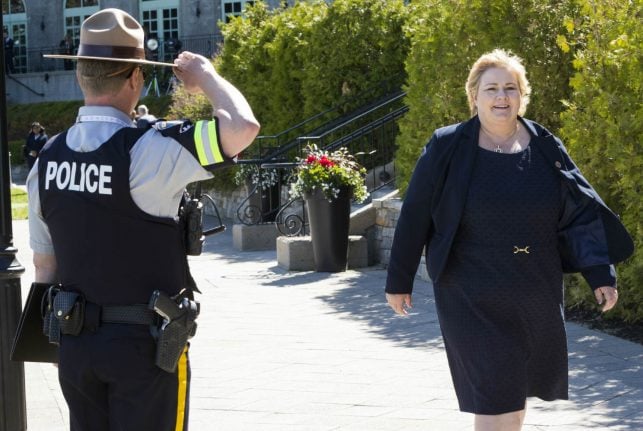The fund was announced by Prime Minister Erna Solberg in Quebec City on Saturday, newspaper VG reports.
The Norwegian PM was in the capital during the weekend’s G7 talks in the city.
“We are willing to contribute 100 million kroner [10 million euros, ed.] every year,” VG reports the PM as saying to Norwegian media in Quebec on Saturday.
Solberg said that she hoped other countries would join Norway in financially supporting the effort to remove plastic from oceans.
“Popular support for this is huge now. Plastic in the ocean has become symbolic. It’s not just in Norway that we’ve seen whales washed up with their stomach full of plastic,” she said.
The Norwegian PM added that it will take time for other countries to commit themselves to the initiative.
“We spent three years talking about girls and education and not until now is it happening [that other countries have pledged to work towards it],” she said.
Solberg was invited to the G7 meeting to speak about the issue and was the only Nordic head of government to attend the summit.
Norway plans to host a research conference in the coastal city of Bergen later this year which Solberg hopes leading researchers from G7 countries will attend, VG reports.
READ ALSO: Norwegian government to spend millions removing litter from sea



 Please whitelist us to continue reading.
Please whitelist us to continue reading.